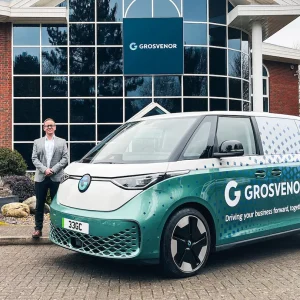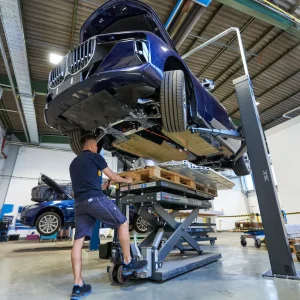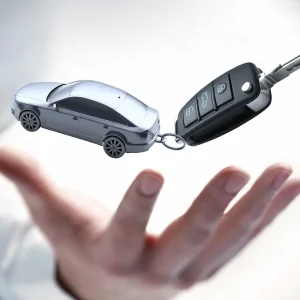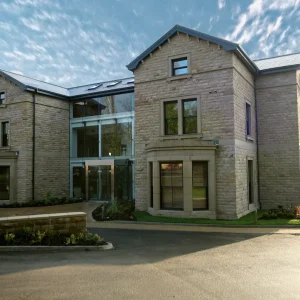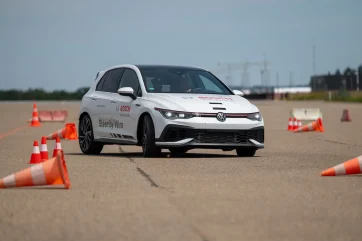
Technology company Bosch has unveiled several innovative car control systems that could be seen on production cars within the next few years, amid a wider focus on software.
The firm, a major automotive industry supplier, offered its vision of the future at its Tech Day 2024 event, where Business Car was among the media organisations given the chance to try out developmental systems from Bosch’s Vehicle Motion Management package, on the test track at its Research Campus in Renningen.
Among these was the company’s brake-by-wire system, installed on a car which appears to be fitted with traditional accelerator and brake pedals – except they don’t actually move. Instead, pressure pads detect how much force the driver is applying to the ‘pedals’ and adjusts the acceleration and braking accordingly. It sounds disorientating, but on the move we found ourselves getting used to it surprisingly quickly.
The logic behind it is sound – Bosch argues that 80% of leg injuries in crashes are caused by the brake pedal being shoved towards the driver. By making it operate by wire, no physical linkage is necessary, so this problem is removed. In addition, it is possible to calibrate how severely the pedal responds to different forces – so different drivers could set the car to their personal preference – and, with potential future part-time self-driving cars, there is no need to have unnecessary pedals cluttering the footwell. The system also makes it much easier for the transition between battery regen and actual braking to be disguised with electrified cars. (And, perhaps recognising some may be nervous, Bosch can also fit the technology with more conventional, moving pedals).
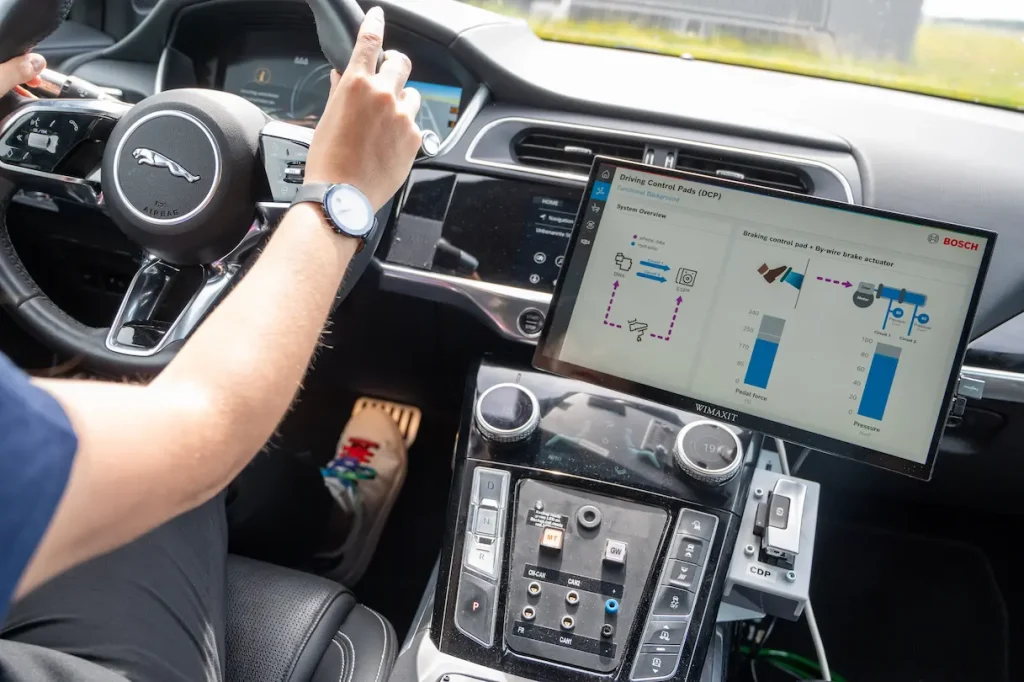
It’s not just brakes, either – Bosch also let us try its steering-by-wire system. This allows the responsiveness of the wheel to be adjusted – just over half a turn to full lock in Sport mode, and a full turn in Comfort mode, to suit different driving requirements and drivers’ preferences. This also worked fine, although – despite feedback being programmed in – we still felt fairly removed from the experience in Sport mode, and think the system would need more development to be properly suited to a performance car.
Bosch has also applied its technology to comfort, with its e-braking to zero system. This works to removes the jolt when a car stops, by automatically rolling off the pure EV braking as it comes to a halt. This proved very effective on the track, making it easy for anyone to brake like a chauffeur.
Speaking at the event, which also showcased systems for functions such as alerting local authorities to potholes, and reminding parents of children left behind in car back seats, Bosch mobility sector chairman Markus Heyn argued that the company was well placed to benefit from an increased importance attached to software in the car industry.
He said: “We’re standing at the dawn of the age of the software-defined vehicle. For Bosch, that’s good news, because we can do both: hardware and software.
“We are one of the few companies that are fully proficient in the interplay of automotive electronics and the cloud.”
Bosch says that, by the end of the decade, it wants to generate software sales running into the billions. It quotes a McKinsey study estimates that the global market for automotive software and electronics will reach $462 billion by 2030, and says it wants to be part of this growth market, and to “remain the go-to partner for automakers worldwide”.

